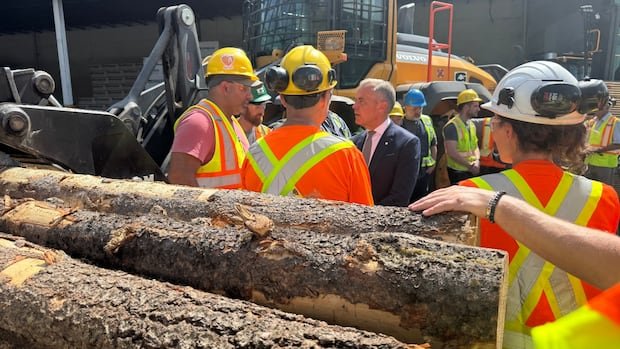The United States has raised countervailing duties on Canadian softwood lumber to 35.19 percent, as confirmed by the U.S. Department of Commerce on Friday. Although the anticipated increase in fees sparked swift criticism from industry and political leaders in British Columbia and Ontario, who view it as another example of unfair treatment from their significant trade partner.
B.C.’s Forests Minister Ravi Parmar criticized the move, labeling it as “absurd and reckless,” emphasizing that the additional duties would exacerbate affordability challenges on both sides of the border. Parmar highlighted that these tariffs negatively impact Canadian forestry workers and ultimately burden U.S. consumers seeking to build homes.
Stakeholders in the Canadian forest industry, such as the B.C. Council of Forest Industries and the B.C. Lumber Trade Council, expressed concerns over the detrimental effects of the new fees. The trade council’s president, Kurt Niquidet, emphasized the necessity for a stable agreement that supports jobs, trade, and housing affordability, as the ongoing dispute affects communities in both countries.
Similarly, the Ontario Forest Industries Association pointed to a report from the Canadian Chamber of Commerce, revealing that tariffs have significantly increased the cost of building homes in the U.S. The longstanding issue of softwood lumber trade disagreements between Canada and the U.S. centers on differing perspectives on pricing mechanisms and fair market value.
Despite previous legal victories for Canada under various trade agreements, Parmar highlighted the challenges posed by the current U.S. administration’s stance on trade issues. The escalating duties over the years have already impacted the Canadian industry, leading to job losses and market access limitations, particularly in British Columbia.
In response to these challenges, Prime Minister Mark Carney recently announced over $1.2 billion in support for the Canadian forestry sector, aiming to diversify markets and assist affected workers. Parmar expects a significant portion of the funding to benefit British Columbia, underscoring the importance of reducing dependence on the U.S. market for long-term industry sustainability.
